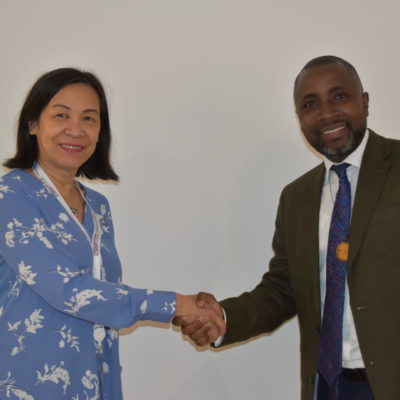Washington, D.C.—At a hearing held by the House Foreign Affairs Committee yesterday, the State Department’s anti-trafficking Ambassador Luis CdeBaca recommended that slavery eradication efforts take a more victim centered approach. Survivors of modern day slavery should not be treated like criminals, he said.
The hearing, titled “Out of the Shadows: The Global Fight Against Human Trafficking,” took a broad based look at human trafficking around the world and what was being done to combat it.
MODERN SLAVERY IS ‘SUBTLE’
Slavery is often difficult to detect. And millions are vulnerable to it. Committee Chairman Howard Berman (D-CA) said there is only a “thin line between being short on your paycheck and being held bondage.”
Neha Misra of the Solidarity Center’s Migration and Human Trafficking program said media and policy focus on commercial sexual exploitation has caused enslaved laborers to be overlooked.
“In 2010, a slave is not necessarily a person in chains or shackles,” she said. “Modern day slavery can be much more subtle. Trafficking victims toil in factories that produce products that are exported to the U.S. [They] harvest vegetables and process food that ends up on our dining room tables,… pick crops or mine minerals that are raw materials in the products we buy.”
SLAVERY IN ASIA
Asian countries and their Trafficking in Persons (TIP) report rankings were at the center of much of the discussion.
Representative Ed Royce (R-CA) showed his disappointment that Cambodia was moved up from Tier 3—the lowest possible ranking—to Tier 2, saying it was a “slap in the face to the thousands of victims” still enslaved. David S. Abramowitz, Director of Policy and Government Relations at Humanity United spoke about his work in Nepal, where 90 percent of migrant workers are trafficked into labor and sex slavery.
Read about Free the Slaves’ work in Nepal
Representative Chris Smith (R-NJ) shared stories of North Korean defectors trafficked in China. He criticized China’s one child policy, saying it contributed to the trafficking of women into forced marriages. He pointed to an investigative article in The Economist titled “The War on Baby Girls” that said 100 million girls are missing, due to sex selective abortions in China and Northwestern India.
And yet, China and India are Tier 2 countries. Smith urged CdeBaca to re-assess these rankings, saying that neither country complies with the minimum standards prescribed by the Trafficking Victims Protections Act.
MOST OF THE WORLD’S SLAVES ARE IN INDIA
India’s caste system drives millions into slavery, said Dr. Beryl Ann D’Souza, Medical Director of the Dalit Freedom Network. “Of the 27 million people around the world that the UN considers human slaves in the trafficking industry, the UN recognizes that most live in India and most are Dalits,” she said. Dalits are the lowest level of India’s caste system. While slavery is illegal in India, centuries of social pressure keep many dalits in bonded labor.



